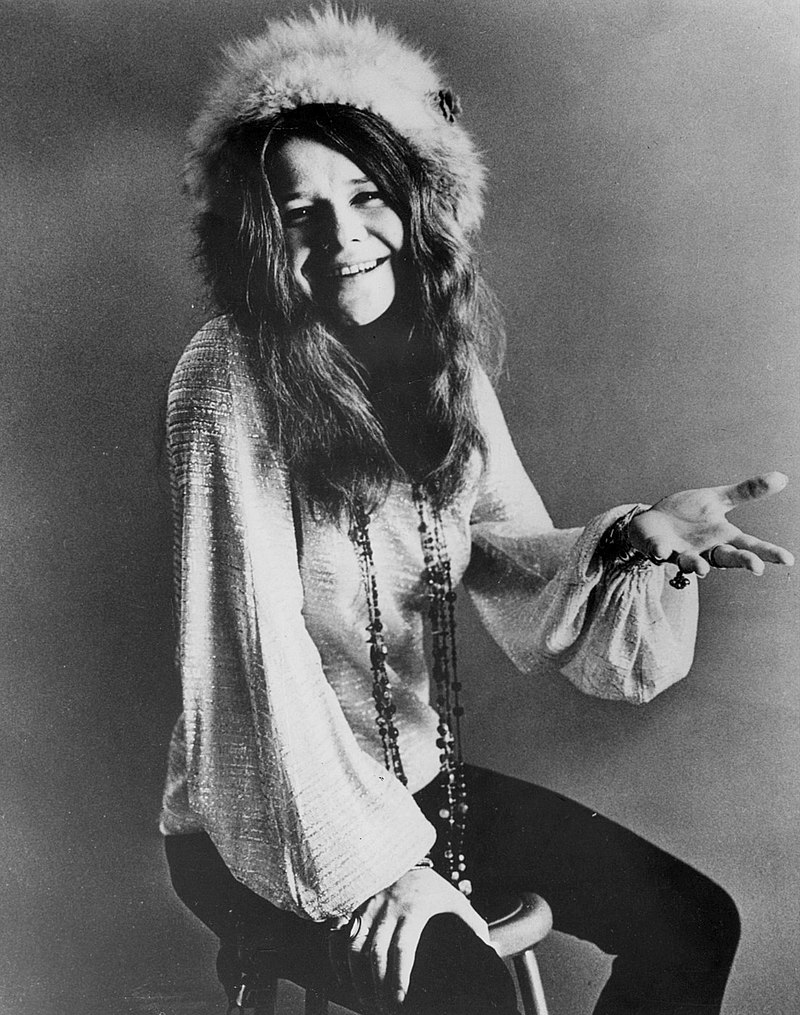Janis Joplin
Janis Joplin

Janis Lyn Joplin (January 19, 1943 – October 4, 1970) was an American singer and songwriter, widely recognized as one of the most successful and influential rock performers of her era. Known for her powerful mezzo-soprano vocals and electrifying stage presence, Joplin rose to fame after her captivating performance at the Monterey Pop Festival in 1967 as the lead singer of the San Francisco psychedelic rock band Big Brother and the Holding Company.
Following her tenure with Big Brother, during which she released two albums, Joplin pursued a solo career with her backing groups, first the Kozmic Blues Band and later the Full Tilt Boogie Band. She became a symbol of counterculture and freedom, appearing at iconic events like the Woodstock festival in 1969 and the Festival Express train tour.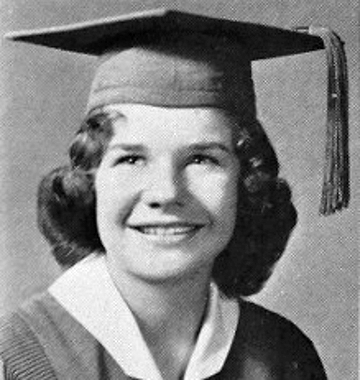
Joplin's impact on the music scene was significant, with five of her singles reaching the US Billboard Hot 100, including her chart-topping cover of Kris Kristofferson's "Me and Bobby McGee" in March 1971, released posthumously. Her repertoire included memorable covers like "Piece of My Heart," "Cry Baby," "Down on Me," "Ball and Chain," and "Summertime," along with her original composition "Mercedes Benz," her final recording.
Tragically, Joplin succumbed to a heroin overdose in 1970 at the age of 27, leaving behind three albums, two with Big Brother and one solo release. Her posthumous album "Pearl," released in January 1971, soared to number one on the Billboard charts.
In recognition of her immense influence and contributions to rock music, Joplin was posthumously inducted into the Rock and Roll Hall of Fame in 1995. Rolling Stone magazine honored her as one of the greatest artists and singers of all time, placing her at number 46 on its 2004 list of the 100 Greatest Artists and number 28 on its 2008 list of 100 Greatest Singers. NPR also celebrated Joplin as "The Queen of Rock" and named her one of the 50 Great Voices.
Even after her untimely death, Joplin's music continues to resonate with audiences, making her one of the top-selling musicians in the United States, with over 18.5 million albums sold according to the Recording Industry Association of America.
Janis Joplin, born in Port Arthur, Texas, on January 19, 1943, was the daughter of Dorothy Bonita East, a registrar at a business college, and Seth Ward Joplin, an engineer at Texaco. She grew up with two younger siblings, Laura and Michael, in a household that attended the First Christian Church of Port Arthur, affiliated with the Christian Church (Disciples of Christ) denomination.
During her teenage years at Thomas Jefferson High School, Joplin found solace and inspiration in the music of blues artists like Bessie Smith, Ma Rainey, and Lead Belly, whose albums she discovered through a group of outcast friends. Despite facing ostracism and bullying in high school due to her weight, acne, and unconventional interests, Joplin persevered, developing her singing talents and exploring blues and folk music.
Graduating from high school in 1960, Joplin briefly attended Lamar State College of Technology in Beaumont before enrolling at the University of Texas at Austin (UT). Although she did not complete her college studies, she made an impression on campus with her distinctive style and personality. The campus newspaper, The Daily Texan, profiled her in 1962, describing her as a nonconformist who dared to be different, often seen barefoot, wearing Levi's, and carrying her autoharp for impromptu song sessions.
During her time at UT, Joplin performed with the folk trio the Waller Creek Boys and immersed herself in the campus community, socializing with the staff of The Texas Ranger, the campus humor magazine. She also developed friendships with individuals like Gilbert Shelton, later known for his Freak Brothers cartoons, and contributed to the magazine's distribution by selling copies containing Shelton's early comic books.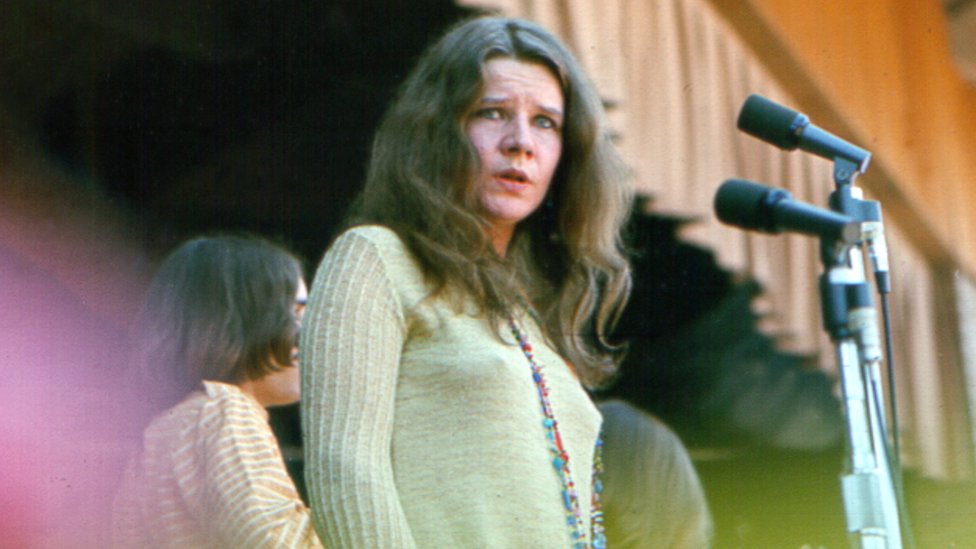
Joplin's formative years in Texas laid the foundation for her unique artistic expression and set the stage for her groundbreaking career as a rock and blues icon.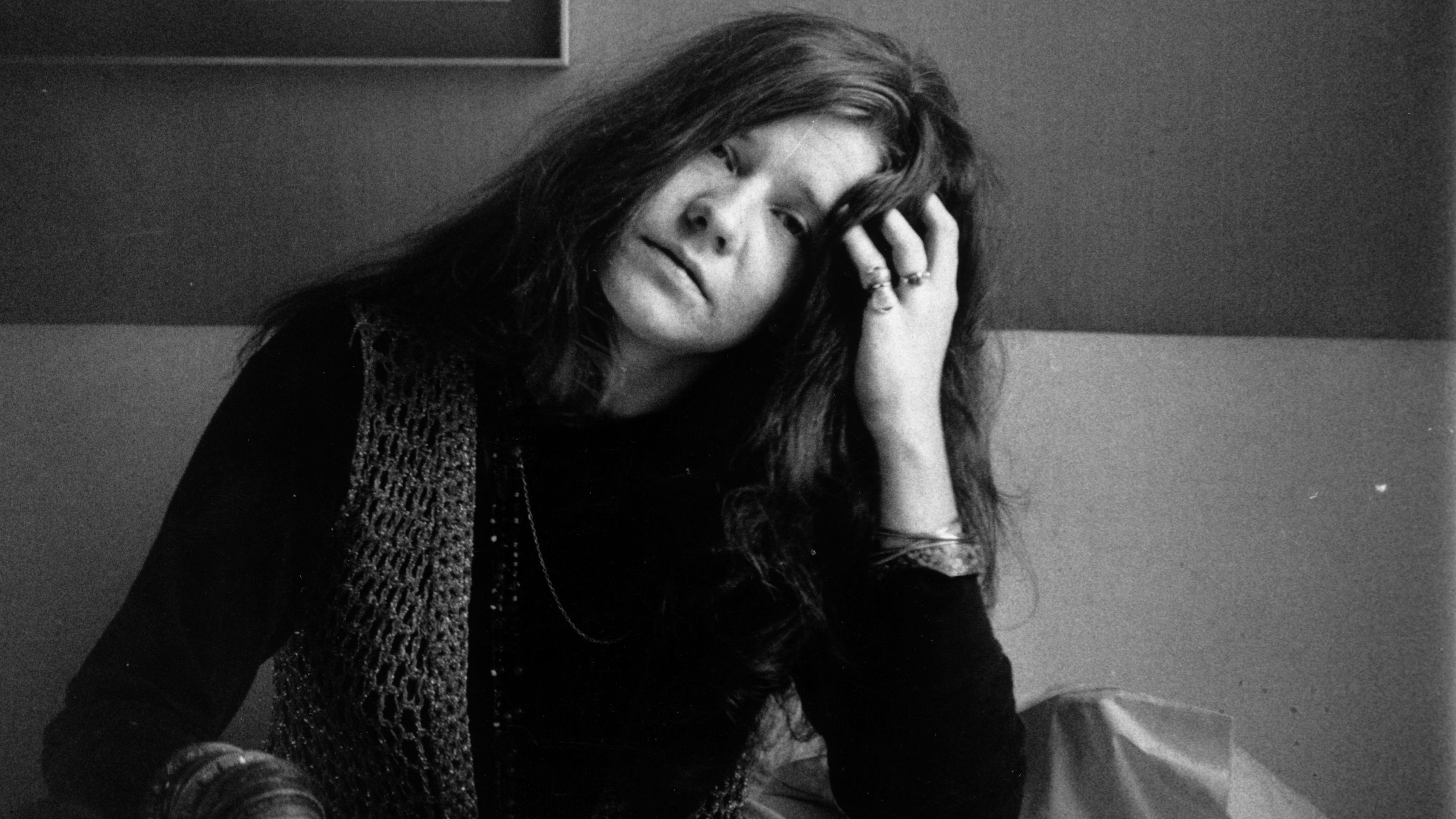
Janis Joplin's journey into the music scene was marked by a rebellious spirit and a passionate pursuit of her artistic vision. After recording her first song, "What Good Can Drinkin' Do," in December 1962 while at the University of Texas, Joplin felt the urge to break away and explore new horizons. In January 1963, she left Texas for San Francisco with her friend Chet Helms, seeking to escape and find herself in a different environment.
In San Francisco, Joplin's musical aspirations took shape as she collaborated with future Jefferson Airplane guitarist Jorma Kaukonen on blues recordings. Despite her growing reputation as a talented singer, Joplin's personal life was fraught with struggles. Her involvement in drugs and alcohol escalated, earning her a reputation as a "speed freak" and occasional heroin user.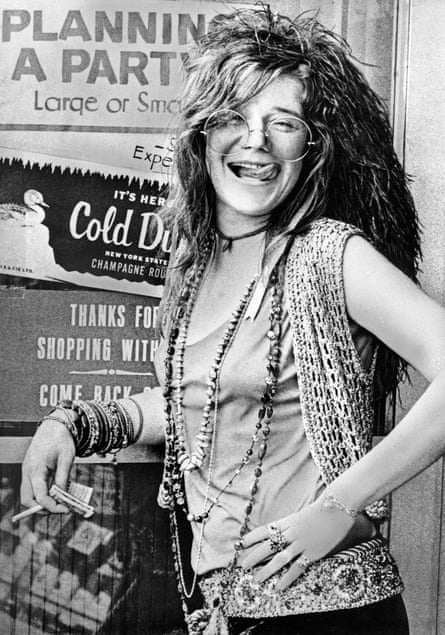
In May 1965, concerned friends convinced Joplin to return to Port Arthur, Texas, where she underwent a transformation, distancing herself from substance abuse and focusing on her health and education. She enrolled at Lamar University, pursuing a major in anthropology and occasionally performing in Austin.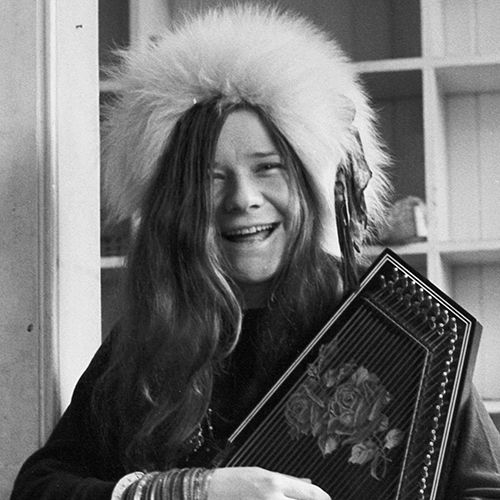
During this period, Joplin grappled with her personal demons and sought guidance from a psychiatric social worker, Bernard Giarritano, to reconcile her musical ambitions with her desire to remain drug-free. Despite her inner turmoil, Joplin's passion for music remained undiminished.:max_bytes(150000):strip_icc()/janis-joplin-2be4d212ab7e42e3bd3de2713f850982.jpg)
In 1965 and 1966, she recorded several tracks with her acoustic guitar, including original compositions like "Turtle Blues" and covers such as "Cod'ine" by Buffy Sainte-Marie. These recordings offered glimpses of her raw talent and uncompromising spirit.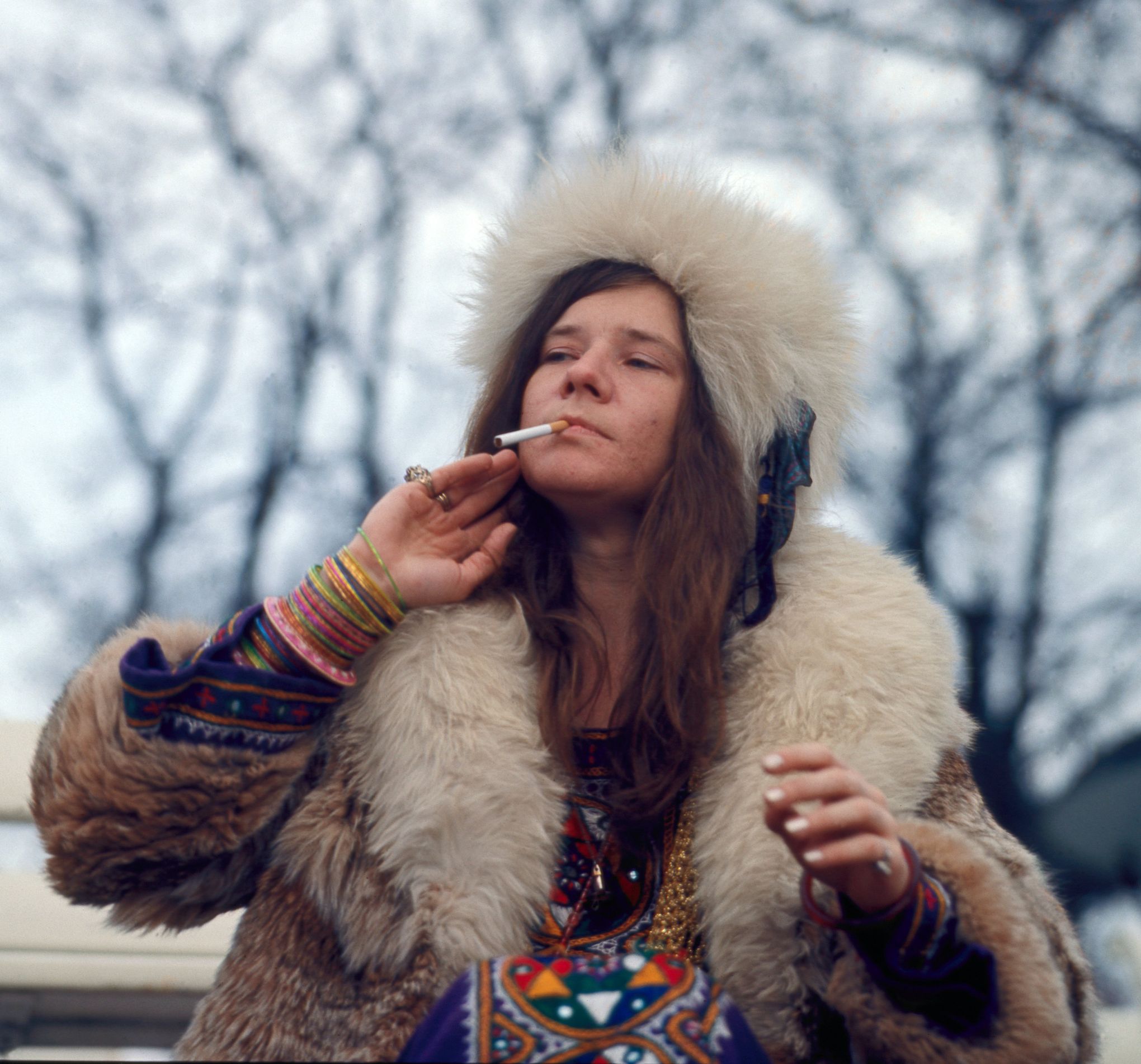
Joplin's journey toward self-discovery and artistic expression would ultimately lead her to join Big Brother and the Holding Company, setting the stage for her meteoric rise to fame and her enduring legacy in the world of rock music.
References
- "Kozmic Blues - Janis Joplin's Kozmic Blues". Kozmic Blues. Archived from the original on April 22, 2020. Retrieved May 7, 2022.
- ^ Bennett, Gloria (1994). Breaking Through: From Rock to Opera, the Basic Technique of Voice. Hal Leonard Corporation. p. 28. ISBN 978-0-7935-7238-0. Archived from the original on April 30, 2021. Retrieved September 10, 2013.
- ^ Kemp, Mark. "Janis Joplin Biography". Rolling Stone. Archived from the original on February 20, 2016.
- ^ Gaar, Gillian G. (February 9, 2000). "Janis Joplin". Britannica.com. Archived from the original on March 24, 2016. Retrieved May 8, 2016.
- ^ "Janis Joplin Collection". Rock & Roll Hall of Fame. Archived from the original on March 12, 2012.
- ^ "Women Who Rock: Greatest Breakthrough Moments, 1967 Janis Joplin takes a piece of our heart". Rolling Stone. June 22, 2012. Archived from the original on September 12, 2017. Retrieved August 22, 2017.
- ^ Yamato, Jen (November 21, 2015). "The Secret Life of Janis Joplin: A Girl, Interrupted". The Daily Beast. Archived from the original on June 3, 2016. Retrieved May 8, 2016.
- ^ Robins, Wayne (2016). A Brief History of Rock, Off the Record. Routledge. pp. 111–112. ISBN 978-1-1359-2346-4.


